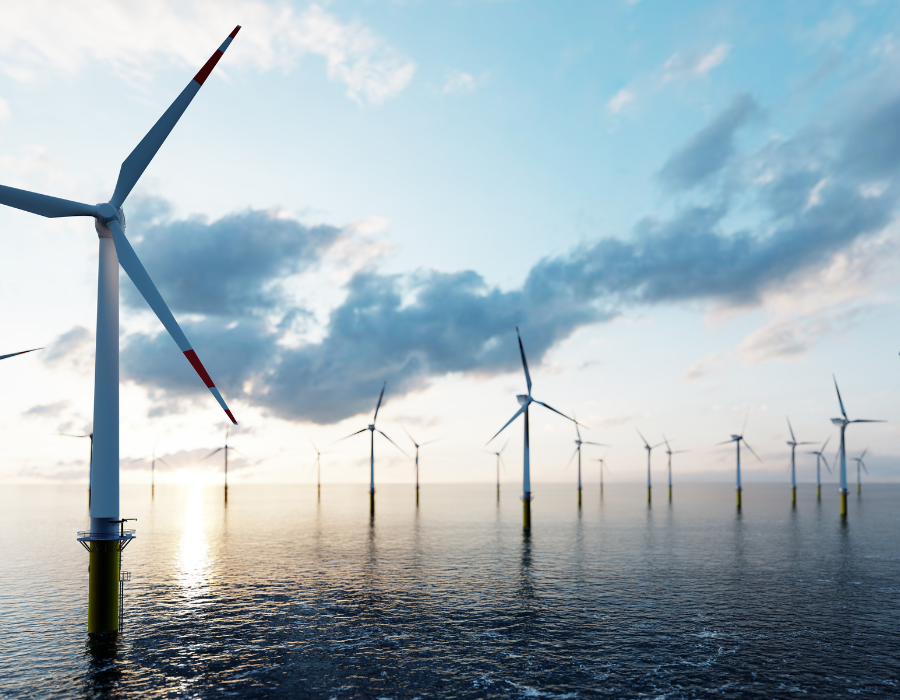A new evidence report that was first requested by the Directorate-General for Environment (DG ENV) of the European Commission (EC) and submitted to the Science Service for Biodiversity (SSBD) via the EC Knowledge Centre for Biodiversity (KCBD) ticketing system has been released. Funded by BioAgora and coordinated by our partners from Eklipse, this report contributes to the scientific understanding of how Offshore Wind Farm (OWF) developments cumulatively affect marine ecosystems across Europe while identifying significant knowledge gaps.
Prepared by an Eklipse Expert Group, the output screened over 4,000 scientific articles, retaining 228 to assess the relationship between fixed offshore wind farm foundations and the 11 descriptors of the EU Marine Strategy Framework Directive (MSFD). This laid the foundation for a comprehensive synthesis of how offshore wind farms may affect the achievement of Good Environmental Status (GES) under the MSFD, and with it the health and functioning of European seas.
A scoping review and an online participatory expert workshop underpinned the study, highlighting that while knowledge of individual impacts and mitigation measures is growing, evidence on cumulative impacts - arising from multiple wind farms, interactions with other marine activities and cascading ecosystem effects - remains limited and unevenly distributed.
Key findings of the report include:
- Critical knowledge gaps: Current research focuses mainly on exploration, construction and operation phases of offshore wind farms - information on their decommissioning, areas beyond the Greater North and some MSFD-relevant species and habitats are not adequately covered.
- Not all descriptors allowed to capture evidence of impacts: Information on non-indigenous species, contaminants, contaminants in seafood and marine litter, which is crucial in this context, is currently insufficient.
- Policy integration: Scientific evidence on offshore wind farm impacts rarely discusses links to the MSFD or its descriptors, relevant assessment criteria for GES, or the recently negotiated thresholds.
- Cumulative impacts with cascading effects are overall poorly understood: Evidence of population-level effects and cross-boundary ecological changes from multiple wind farms typically has a limited spatial and temporal focus.
- Need for standardised monitoring: The lack of comparable data and consistent methodologies limits the ability to assess and manage cumulative impacts across EU waters.
- Importance of long-term data: Continuous and coordinated monitoring programmes are essential to effectively consolidating and utilising information on the subject in its topical diversity.
A coordinated path forward
In conclusion, the report calls for a comprehensive, integrated and adaptive framework for assessing offshore wind farm impacts, including cumulative impacts in alignment with the MSFD. This framework should support MSFD objectives for the monitoring, assessment, avoidance and mitigation of pressures that could hinder the achievement of Good Environmental Status in EU marine waters. Addressing the identified gaps through investment in monitoring, standardisation and collaborative research will be crucial to support the EU’s renewable energy goals while safeguarding marine biodiversity.
The full report can be accessed here. More on the knowledge request behind this output can be found on this page.
